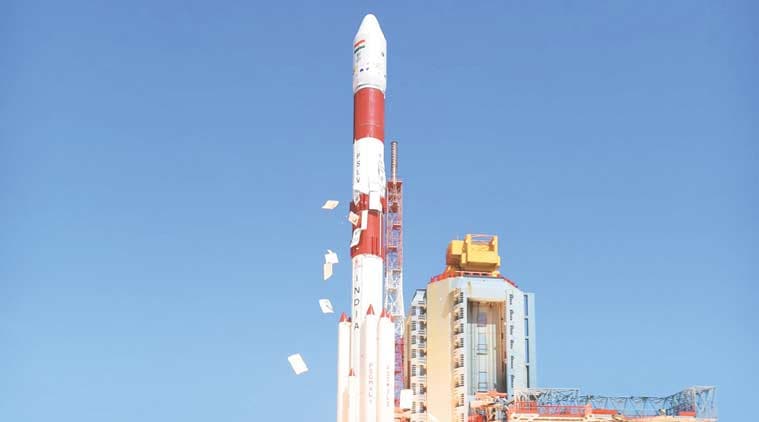- India
- International
Heavy lifter
ISRO demonstrates the numbers to be the world’s budget launch agency, could help set a new agenda for space
 The number of satellites that can be carried at a time is restricted by the space available on the rocket and its carrying capacity in terms of weight.
The number of satellites that can be carried at a time is restricted by the space available on the rocket and its carrying capacity in terms of weight.
The Indian Space Research Organisation’s PSLV-C34 launch has set a new benchmark for the national space industry. Injecting 20 satellites into polar orbit, it has reaffirmed ISRO’s reputation as a bulk provider of cheap but reliable launches, which it has been building industriously since 2008, when a launch vehicle placed 10 satellites in orbit. Significantly, only one of the satellites deployed in Wednesday’s launch was owned by the government. Two were projects of Indian universities and 17 were of foreign provenance.
ISRO does not hold the record for the maximum simultaneous launches, but it’s found a place in the major league. Numerically, top honours are shared by the Russian and American space programmes. And on July 6, the KickSat project riding on Elon Musk’s SpaceX is expected to spit out 100 disposable “chipsats” the size of PostIts. The future of space exploration, especially difficult missions to distant stars and galaxies, could look something like this, as backers distribute risk across thousands or even millions of disposable probes, instead of putting all their investments in a single vehicle.
Such projects are being dreamed up by investors like the venture capitalist Yuri Milner, and are expected to fly within two decades. But long before that, concerns about data security and privacy will energise the global market for satellites. Governments own satellites because of these concerns, and as the cost of ownership falls, corporates, communities and even rich individuals could follow suit, preferring to own small
satellites rather than renting transponders. Reliable bulk launch services can cash in on this emerging market. Traditionally, space programmes have been funded by the taxpayer and guided by political perceptions of national interest. But with its prowess as a commercial provider, ISRO could subsidise the Indian programme and to an extent, scientific interest could set the agenda for space.
EXPRESS OPINION
More Explained
Apr 26: Latest News
- 01
- 02
- 03
- 04
- 05











































